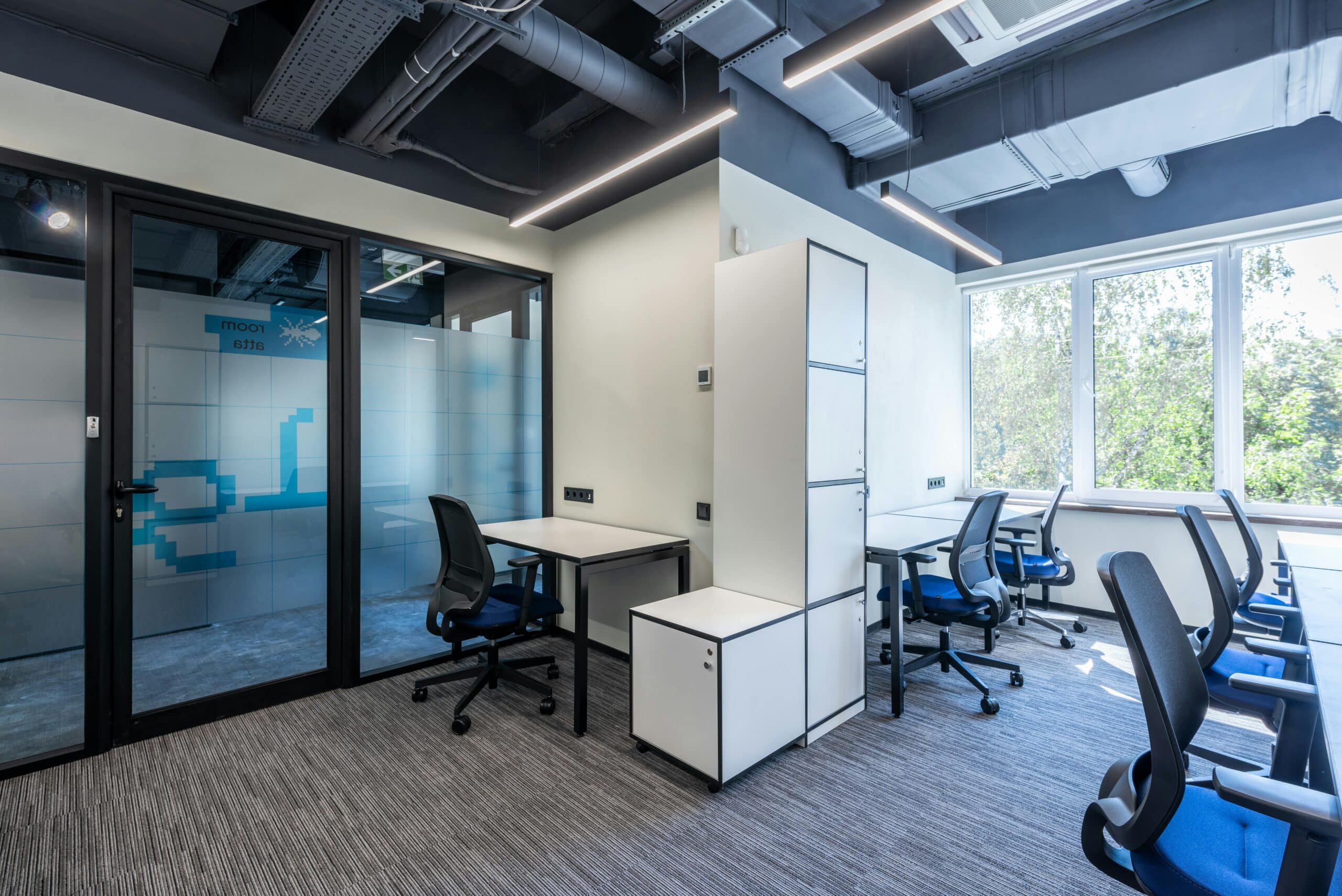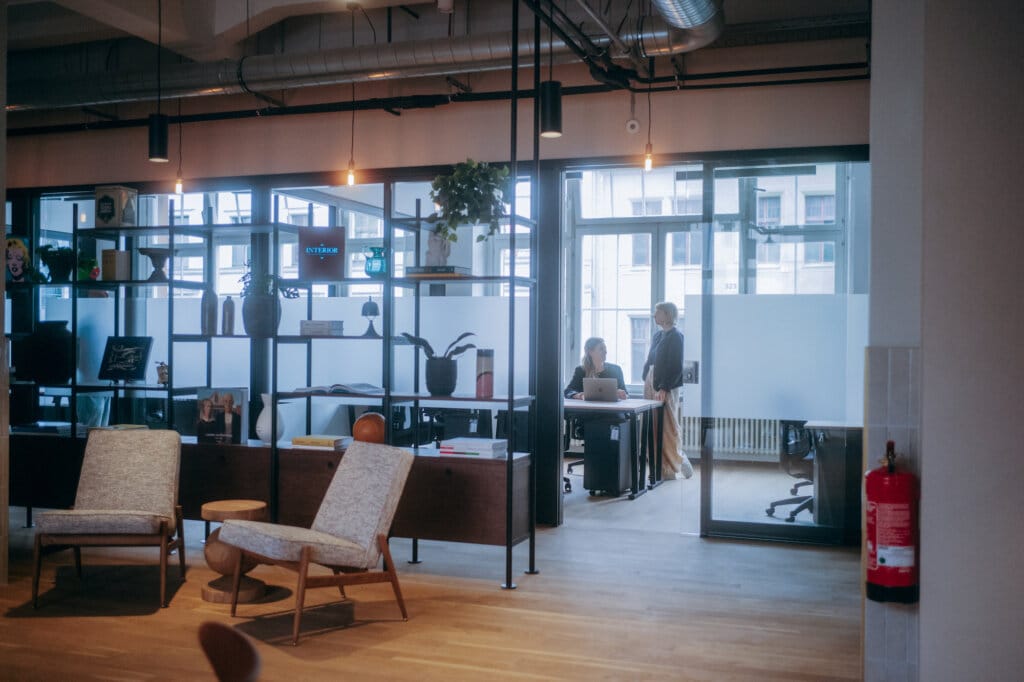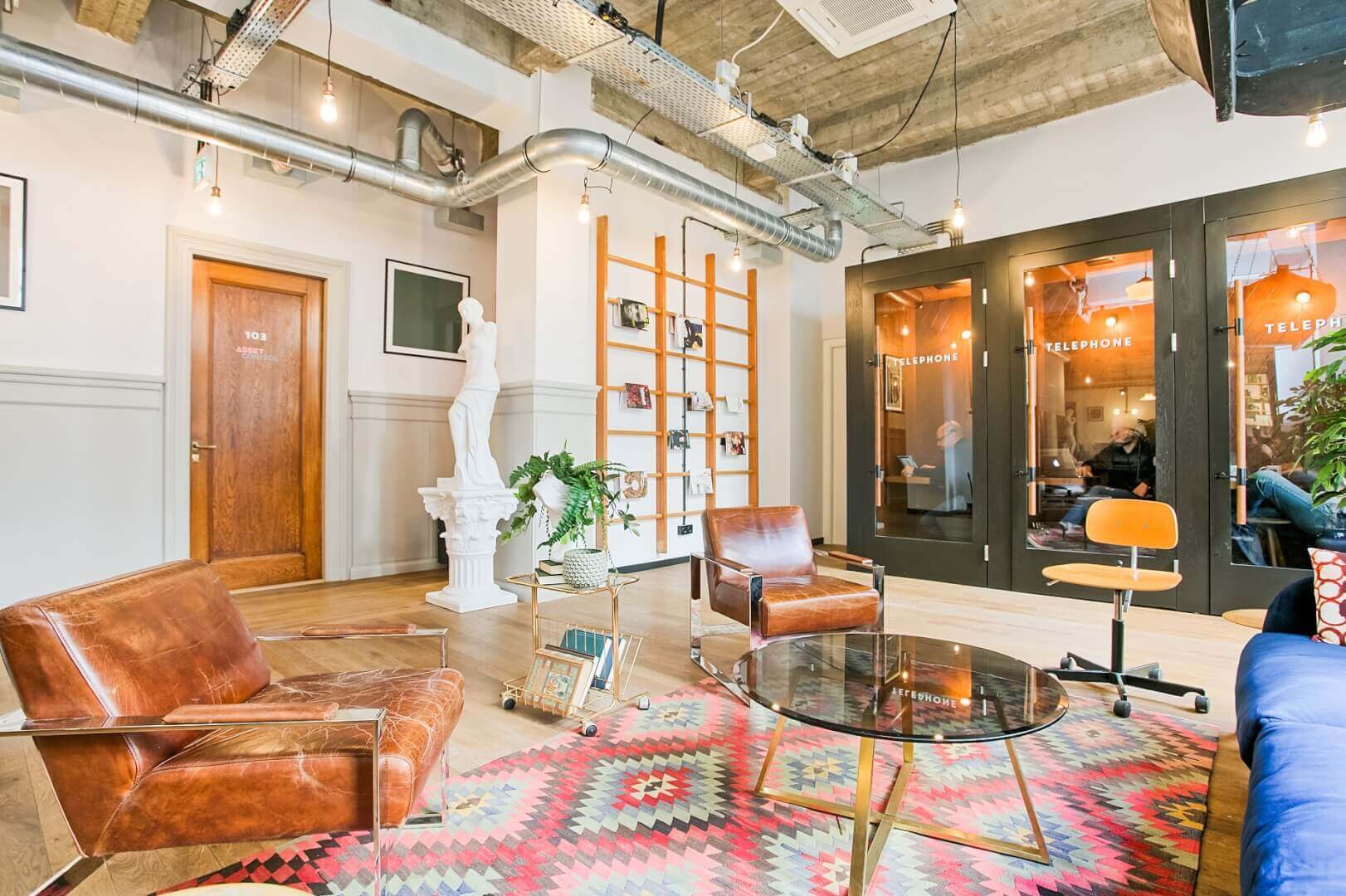
Renting Private Office Spaces: The Ultimate Guide for Businesses
Workspace needs keep changing, and private office spaces have become something of a goldmine for businesses seeking both productivity and professionalism. Think about it: wouldn’t you prefer a space that gives you privacy while still connecting you to a broader business community? That’s exactly what private offices offer. Companies big and small are rethinking their workspace strategies, and many find private offices hit that sweet spot between isolation and openness.
I’ve seen how places like Mindspace blend old-school office benefits with new-school flexibility. You get to keep your company identity intact while tapping into some seriously nice amenities. And let’s be honest, who doesn’t want that?
Got questions about private offices? This guide should answer them all. We’ll cover the basics, what to look for, costs (including the sneaky ones), and how to pick a provider that won’t leave you with remorse.
Maybe you’re outgrowing your home office setup. Maybe you’re tired of trying to impress clients at noisy coffee shops. Or maybe those rigid 10-year leases give you nightmares. Whatever your situation, I hope this guide gives you the confidence to make smart choices about private office space.
What Are Private Office Spaces and Why Choose Them?
Picture this: your own four walls, your company’s name on the door, but you’re still part of something bigger. That’s what private office spaces give you. Unlike those open-plan setups where you can hear every conversation within fifty feet, private offices carve out your territory while still letting you access shared perks like fancy coffee machines and meeting rooms.
The beauty lies in the balance. Coworking spaces with their hot desks work great for some folks, but private offices offer something different. You maintain your company culture and keep sensitive conversations private, yet you don’t have to commit to a decade-long lease that might outlast your business plan.
Makes sense why they’re gaining popularity, right?

The Evolution of Private Office Solutions
Office space hasn’t always been this flexible. Think back ten years-businesses needing private space faced pretty limited options. You’d sign those intimidating commercial leases (anyone else sweaty at the thought of a 10-year commitment?), put down deposits that could finance a small car, and pray your business trajectory matched your space needs for the duration.
The game has completely changed. Companies like Mindspace recognized that businesses need stability without getting locked in handcuffs. Now you can find private office solutions that give you that exclusive, professional feel, but with contracts that actually acknowledge business realities. Need to expand in six months? No problem. Need to downsize? Not the crisis it once was.
This isn’t just a minor shift-it’s a complete rethinking of how businesses approach workspace. Your office isn’t a ball and chain anymore; it’s a service that grows with you.
Ready to experience the flexibility of Mindspace’s private office solutions for yourself? Book a tour today!
Key Benefits of Private Office Rentals
I could list dozens of reasons businesses love private offices, but a few stand out from the pack.
First, privacy isn’t just nice; it’s necessary. When your team discusses client information or develops your next big product, you don’t want competitors or random folks overhearing. Private offices create that secure bubble your sensitive work requires.
Productivity skyrockets when you control your environment. I remember reading that University of California research people need a full 23 minutes to properly refocus after someone interrupts them. In shared spaces, those interruptions come fast and furious. Private offices dramatically cut that productivity drain.
Your brand gets to shine, too. Customizing your space with logos, brand colors, and your unique vibe helps reinforce company culture internally while impressing visitors. It’s your space, your rules.
Teams naturally gel better in shared private spaces. You create those informal collaboration moments while still having room for focused work.
And let’s not forget professionalism. Having a proper business address with reception services instantly elevates your company image compared to meeting clients at your kitchen table or a crowded café.

Essential Features to Look for in Private Office Spaces
Not all private offices deliver equal value. Some spaces look great in photos but fail miserably in practice. Let me help you spot the difference between exceptional spaces and those just playing dress-up.
Physical Space and Design Elements
The physical environment affects your team more than you might realize. Natural light isn’t just nice; it’s practically essential. Cornell researchers found something astonishing: workers in naturally lit offices reported 84% fewer headaches, less eyestrain, and sharper vision. That’s not just comfort-that’s productivity you can measure.
Sound matters tremendously. Good office design includes proper acoustic treatment. Nobody wants to hear every word from the office next door, and you certainly don’t want your strategy sessions broadcast to the hallway. Quality sound insulation pays dividends daily.
Think about workflow when considering layout. Some teams thrive with collaborative setups inside their private space; others need individual focus zones. The best providers let you customize arrangements to match how your team actually works, not how they think you should work.
Don’t underestimate ergonomics, either. I’ve worked in spaces with gorgeous furniture that left everyone with backaches by Wednesday. Premium providers include adjustable desks and proper chairs as standard features, not expensive add-ons you discover later.
See here what to expect from a furnished office we wrote about recently.
Technology and Infrastructure
Tech capabilities can make or break your experience. The Internet is the obvious one-you need fast, reliable connections with backup systems for when things go wrong (because they will). Ask potential providers about dedicated bandwidth options and wired connections if your work involves data-heavy operations.
Smart features increasingly separate good spaces from great ones. App-based room booking, digital visitor systems, and integrated communication tools make daily operations smoother. They’re not just fancy extras; they’re practical time-savers.
Power access sounds basic but gets overlooked. Your team needs outlets everywhere-not just walls but floor ports for central seating arrangements. Nothing kills productivity faster than extension cord spaghetti across walkways.
As hybrid meetings become standard, audio-visual capabilities matter more than ever. Look for spaces with integrated systems that make video calls feel natural rather than technical nightmares.
Security tech protects both stuff and information. Keycards or mobile access, security cameras in common areas, and secure network setups should come standard with any quality provider.
Amenities and Support Services
The surrounding amenities transform a basic office into a productivity powerhouse. Meeting rooms available when needed prevent you from building rarely-used conference space into your private footprint. This saves money while ensuring you have professional meeting spaces when clients visit.
Reception services create stellar first impressions while handling mundane tasks like greeting visitors and managing deliveries. This lets your team focus on actual work instead of playing doorkeeper.

Kitchen areas and refreshment zones create those valuable informal interaction spaces where some of your best ideas will emerge. Plus, decent coffee keeps everyone happier (and more alert).
Wellness features reflect a growing recognition that workplace health matters. Look for spaces offering quiet zones, outdoor access, or even fitness options if possible.
Cleaning and maintenance shouldn’t be your problem. Quality providers handle this invisibly in the background, so you never have to worry about restocking toilet paper or fixing flickering lights.
Mindspace’s private office spaces generally nail these amenities, letting businesses focus entirely on work rather than facility management headaches.
Cost Considerations and ROI for Private Office Rentals
Money matters, so let’s talk frankly about what these spaces cost and whether they’re worth it.
Understanding Pricing Models
You’ll encounter several pricing approaches when shopping for private offices. Per-desk pricing is straightforward-you pay for each workstation you need. Expect anywhere from $300 to $1,000 monthly per desk depending on location and amenities. Those fancy downtown addresses naturally cost more than suburban outposts.
All-inclusive packages wrap everything into one fee-utilities, internet, cleaning, meeting room access, etc. This simplifies budgeting and prevents surprise bills, though you might pay for services you rarely use.
Membership models give you access across a provider’s network, perfect if your team travels frequently or works across multiple markets. You’ll pay premium rates for this flexibility, so consider whether you’ll actually use it.
Contract length dramatically affects pricing. Most providers offer discounts for longer commitments, creating a classic flexibility-versus-savings tradeoff. Balance this carefully against your certainty about future space needs.
Hidden Costs to Watch For
- Setup and customization fees often appear when configuring spaces for larger teams or specific needs. Ask upfront what these might total.
- Security deposits remain standard, typically running 1-2 months’ rent. Get crystal clear about what conditions might prevent full deposit return before signing anything.
- Usage charges beyond included allocations can add up fast. Going over your allotted meeting room hours or printing limits incurs fees that quickly compound. Request complete fee schedules before committing.
- Termination penalties lurk in contracts from even the most “flexible” providers.
- Rent increase provisions might allow surprise jumps during your term. Look for contracts with reasonable caps on potential increases to avoid budget shocks.
Calculating the Return on Investment
Evaluating private office value means looking beyond direct costs to overall business impact. Productivity gains often justify premium pricing for quality spaces. If better focus allows your team to accomplish just 10% more work, this can offset substantially higher space costs.
Client impressions matter tremendously for client-facing businesses. Hosting meetings in professional environments rather than coffee shops can visibly impact close rates and project values.
Talent considerations increasingly drive office decisions. With skilled workers in high demand, inspiring workspaces become recruiting and retention tools that reduce costly turnover.
Community connections provide networking and business development opportunities that sometimes generate revenue exceeding the premium paid for quality spaces with active membership communities.

How to Choose the Right Private Office Provider
With so many providers competing for your business, how do you find the perfect match? Start by establishing clear criteria based on what truly matters to your specific operation.
Location and Accessibility Factors
Location impacts practically everything about your office experience. Client proximity facilitates meetings and strengthens relationships through convenient access. If you serve specific industries or major clients, being nearby creates natural advantages.
Employee commutes affect hiring, retention, and daily satisfaction. Map where your team lives and look for central locations or spaces near transit hubs to minimize commute stress.
Neighborhood amenities enhance workplace experience dramatically. Having restaurants, shops, and services nearby saves valuable time during busy workdays. Quality providers choose locations surrounded by complementary businesses.
Transportation options should match your team’s preferences. Some want public transit access, others need parking, and some prefer bike facilities. The best locations offer multiple options rather than forcing one approach.
Address prestige matters in certain fields. Let’s be honest, some industries (legal, financial, consulting) still judge books by covers. If your clients expect prestigious addresses, factor this into decisions despite potential premium costs.
Flexibility and Scalability Options
Business rarely develops exactly as planned, making adaptability crucial in office selection. Contract flexibility through short notice periods and minimal penalties allows quick pivots when circumstances change.
Growth accommodation becomes essential for expanding businesses. Leading providers maintain enough inventory to offer adjacent or nearby space when teams outgrow initial footprints.
Downsizing options protect against overcommitment during uncertain periods. Look for providers willing to renegotiate space needs without crushing penalties if your team shrinks.
Multi-location access benefits businesses spanning regions or planning market expansion. Networks like Mindspace let teams maintain consistent experiences across different cities.
Community and Networking Potential
The surrounding community adds value beyond physical space. Networking events connect you with potential clients, partners, and talent. Quality providers organize substantive programming, not just cursory happy hours.
Industry clusters create natural synergies in certain locations. Some providers develop specialized buildings, attracting complementary businesses, creating micro-communities around specific sectors.
Collaboration happens organically in well-curated communities where providers actively connect members with complementary capabilities.
Knowledge sharing occurs through both informal common area interactions and formal programming, creating learning opportunities absent in isolated traditional offices.
Mindspace works hard to foster vibrant professional communities while respecting privacy and autonomy. This balanced approach lets businesses maintain their identity while benefiting from broader connections.
By weighing these factors thoughtfully, you’ll find not just adequate space but a comprehensive business environment supporting your goals, culture, and growth path. The right private office becomes more than a workspace becomes a strategic asset propelling your business forward.
Ready to find your ideal workspace?
Enjoy Mindspace’s thoughtfully designed workspaces and see how the right environment can transform your business. Book your workspace with Mindspace today.




